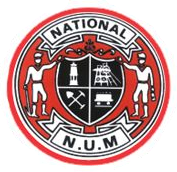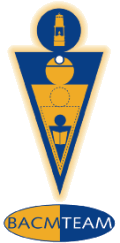Related Research Articles

The Scottish Trades Union Congress (STUC) is the national trade union centre in Scotland. With 40 affiliated unions as of 2020, the STUC represents over 540,000 trade unionists.
In British politics, an affiliated trade union is one that is linked to the Labour Party. The party was created by the trade unions and socialist societies in 1900 as the Labour Representation Committee and the unions have retained close institutional links with it.

The Transport and General Workers' Union was one of the largest general trade unions in the United Kingdom and Ireland – where it was known as the Amalgamated Transport and General Workers' Union (ATGWU) to differentiate itself from the Irish Transport and General Workers' Union – with 900,000 members. It was founded in 1922 and Ernest Bevin served as its first general secretary.

The National Union of Mineworkers (NUM) is a trade union for coal miners in Great Britain, formed in 1945 from the Miners' Federation of Great Britain (MFGB). The NUM took part in three national miners' strikes, in 1972, 1974 and 1984–85. After the 1984–85 strike and the subsequent closure of most of Britain's coal mines, it became a much smaller union. It had around 170,000 members when Arthur Scargill became leader in 1981, a figure which had fallen in 2015 to an active membership of around 100.
In corporate governance, codetermination is a practice where workers of an enterprise have the right to vote for representatives on the board of directors in a company. It also refers to staff having binding rights in work councils on issues in their workplace. The practice of board level representation is widespread in developed democracies. The first laws requiring worker voting rights include the Oxford University Act 1854 and the Port of London Act 1908 in the United Kingdom, a voluntary Act on Manufacturing Companies of 1919 in Massachusetts in the United States, and the Supervisory Board Act 1922 in Germany, which codified collective agreement from 1918.
The Three-Day Week was one of several measures introduced in the United Kingdom by the Conservative government at the time to conserve electricity, the generation of which was severely restricted owing to industrial action by coal miners.

The Ceramic and Allied Trades Union (CATU) was a trade union representing pottery workers in the United Kingdom.

The National Trades Union Congress (NTUC), also known as the Singapore National Trades Union Congress, is the sole national trade union centre in Singapore. NTUC is at the heart of the Labour Movement which comprises 59 affiliated trade unions, 5 affiliated trade associations, 12 social enterprises, 6 related organisations as well as a growing ecosystem of U Associates and enterprise partners. Together, it helms May Day celebrations and organises an annual rally in support of workers' solidarity and commitment to tripartite partnership.
The Miners' Federation of Great Britain (MFGB) was established after a meeting of local mining trade unions in Newport, Wales in 1888. The federation was formed to represent and co-ordinate the affairs of local and regional miners' unions in England, Scotland and Wales whose associations remained largely autonomous. At its peak, the federation represented nearly one million workers. It was reorganised into the National Union of Mineworkers in 1945.

The Modern Records Centre (MRC) is the specialist archive service of the University of Warwick in Coventry, England, located adjacent to the Central Campus Library. It was established in October 1973 and holds the world's largest archive collection on British industrial relations, as well as archives relating to many other aspects of British social, political and economic history.

The General Federation of Trade Unions (GFTU) is a national trade union centre in the United Kingdom. It has 35 affiliates with a membership of just over 214,000 and describes itself as the "federation for specialist unions".

The National Association of Colliery Overmen, Deputies and Shotfirers (NACODS) is an organisation representing former colliery deputies and under-officials in the coal industry.
The National Amalgamated Coal Workers' Union was a trade union in the United Kingdom which existed between 1889 and 1922. It represented coal porters and carmen.
The Canadian Association of University Teachers (CAUT) is a federation of independent associations and trade unions representing approximately 70,000 teachers, librarians, researchers and other academic professionals and general staff at 120 universities and colleges across Canada.

The British Association of Colliery Management – Technical, Energy and Administrative Management (BACM-TEAM) was a trade union in the United Kingdom. It merged with Prospect in 2014.
The Kent Miners' Association was a trade union in the United Kingdom which existed between 1915 and 1945, representing coal miners in the county of Kent. After 1945 it was reorganised as the Kent Area of the National Union of Mineworkers.
The 1972 UK miners' strike was a major dispute over pay between the National Union of Mineworkers (NUM) and the Conservative Edward Heath government of the United Kingdom. Miners' wages had not kept pace with those of other industrial workers since 1960. The strike began on 9 January 1972 and ended on 28 February 1972, when the miners returned to work. The strike was called by the National Executive Committee of the NUM and ended when the miners accepted an improved pay offer in a ballot. It was the first time since 1926 that British miners had been on official strike, but there had been a widespread unofficial strike in 1969.

Arthur Scargill is a British trade unionist. He was President of the National Union of Mineworkers (NUM) from 1982 to 2002. Joining the NUM at the age of nineteen in 1957, he became one of its leading activists in the late 1960s. He led an unofficial strike in 1969, and played a key organising role during the strikes of 1972 and 1974, the latter of which helped in the downfall of Edward Heath's Conservative government.
The history of trade unions in the United Kingdom covers British trade union organisation, activity, ideas, politics, and impact, from the early 19th century to the present.
The National Federation of Colliery Officials was a trade union representing colliery workers in the United Kingdom who were not involved in manual labour.